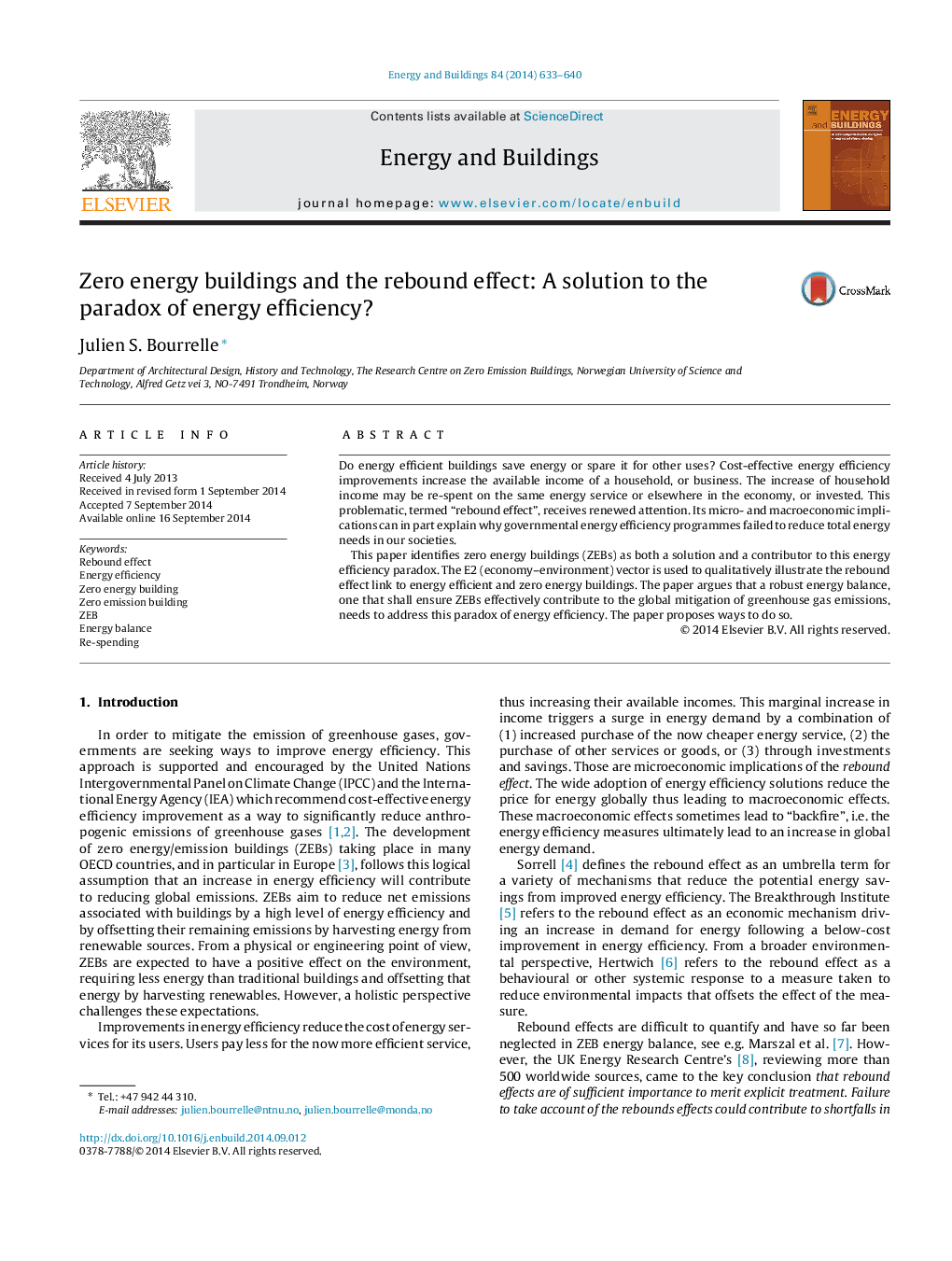| کد مقاله | کد نشریه | سال انتشار | مقاله انگلیسی | نسخه تمام متن |
|---|---|---|---|---|
| 262915 | 504052 | 2014 | 8 صفحه PDF | دانلود رایگان |
• The rebound effect is brought within the framework for a ZEB definition.
• The rebound effect in ZEBs is illustrated using the economy–environment (E2) vector.
• ZEBs are identified as potential solutions and contributors to the rebound effect.
• Ways in which ZEBs can help tackle rebound effects are presented.
• The paper concludes that ZEB definitions should include a cost aspect.
Do energy efficient buildings save energy or spare it for other uses? Cost-effective energy efficiency improvements increase the available income of a household, or business. The increase of household income may be re-spent on the same energy service or elsewhere in the economy, or invested. This problematic, termed “rebound effect”, receives renewed attention. Its micro- and macroeconomic implications can in part explain why governmental energy efficiency programmes failed to reduce total energy needs in our societies.This paper identifies zero energy buildings (ZEBs) as both a solution and a contributor to this energy efficiency paradox. The E2 (economy–environment) vector is used to qualitatively illustrate the rebound effect link to energy efficient and zero energy buildings. The paper argues that a robust energy balance, one that shall ensure ZEBs effectively contribute to the global mitigation of greenhouse gas emissions, needs to address this paradox of energy efficiency. The paper proposes ways to do so.
Journal: Energy and Buildings - Volume 84, December 2014, Pages 633–640
